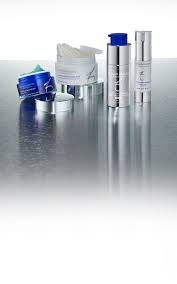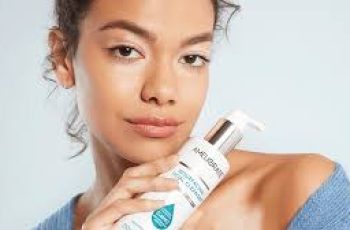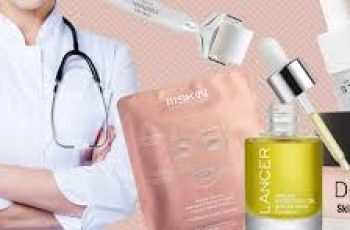
What Is Zinc and What Are Its Skincare Benefits?
Zinc is a mineral that many people have heard of or at least recognize the name. However, its benefits for skincare are often overlooked, whether taken as supplements or applied topically.
This mineral plays a crucial role in maintaining skin health and supporting the body’s functions.
What is Zinc?
Zinc is an essential mineral required by the body for many biological processes. It helps heal wounds, supports immune function, and contributes to the maintenance of healthy skin.
The outer layers of the skin contain relatively high amounts of zinc. However, the body cannot store zinc for extended periods, so regular intake is necessary to maintain optimal levels.
A daily supply of zinc encourages the growth of new, healthy skin cells, which is vital for skin renewal and repair.
Quick Facts About Zinc
Who benefits the most from zinc? People with blemish-prone or problematic skin typically see the greatest advantages from adding zinc to their skincare routine.
Zinc is particularly helpful for those dealing with frequent breakouts or oily skin.
How often should zinc be used? Zinc supplements are generally safe when taken daily, but it is recommended not to exceed 40 milligrams per day to avoid toxicity.
Using zinc topically in skincare products can be done daily, depending on product instructions.
What should you avoid when taking zinc? It’s best not to combine zinc supplements with multivitamins containing zinc, as this can lead to excessive intake.
Overconsumption may cause side effects, so monitor your total zinc sources carefully.
Zinc offers many benefits not just for internal health but especially for the skin. Let’s delve deeper into why zinc is such a valuable mineral for skincare.
What Are the Skincare Benefits of Zinc?
Zinc is prized for several important benefits related to skin health and appearance:
It helps heal skin lesions, wounds, and minor irritations.
Zinc reduces visible inflammation and redness, calming irritated skin.
It aids in the recovery process after active breakouts, speeding up healing.
Zinc can reduce early signs of aging, including fine lines and wrinkles.
It acts as a physical sunblock, protecting skin from harmful UVA and UVB rays.
Why Zinc Is Great for Problematic Skin
Zinc’s ability to regulate oil production in the skin is especially helpful for those prone to acne.
By limiting excess sebum secretion, zinc keeps pores clearer and reduces the chance of new blemishes forming.
A zinc deficiency might be a hidden cause behind unexpected acne flare-ups, making it crucial for skin balance.
Zinc’s Role Beyond Acne
Zinc’s benefits extend beyond just acne-prone skin. This mineral supports the skin’s structural integrity by promoting the synthesis of collagen and elastin fibers.
These proteins keep the skin firm and elastic, so with proper zinc levels, the skin appears tighter and more youthful.
By stimulating collagen and elastin production, zinc helps reduce the visible effects of aging. Fine lines and wrinkles become less pronounced, and overall skin texture improves.
Zinc as a Natural Sun Protector
One of zinc’s standout qualities is its ability to physically block ultraviolet rays.
Unlike chemical sunscreens, zinc oxide forms a protective layer on the skin’s surface that reflects UV rays, shielding the skin from damage.
This protects the skin’s barrier and prevents premature aging caused by sun exposure.
UV radiation generates free radicals, unstable molecules that attack skin cells and degrade collagen.
Zinc counters these harmful effects by neutralizing free radicals and supporting the skin’s natural defenses.
Is Zinc Effective Against Wrinkles?
Yes! Zinc supports the skin’s foundation by boosting collagen and elastin, which diminish with age.
Maintaining adequate zinc levels helps prevent loss of skin elasticity and firmness, which are key contributors to wrinkles.
By preserving these structural proteins, zinc helps keep skin looking youthful and resilient. Regular zinc intake or topical use can visibly slow down the appearance of fine lines and wrinkles.
Different Forms of Zinc and Which Is Best
There are several forms of zinc used in supplements and skincare, each with unique properties:
Zinc acetate
Zinc sulfate
Zinc picolinate
Zinc monomethionine
Zinc gluconate
Zinc glycinate
Zinc orotate
Zinc citrate
Among these, zinc picolinate is considered the most effective for skin health. It has superior absorption, meaning the body can utilize it faster and more efficiently.
Zinc picolinate is also regarded as very safe, commonly recommended for pregnant women with zinc deficiencies.
Topical products containing zinc picolinate or zinc oxide can penetrate the skin barrier to deliver benefits directly to the surface and underlying layers, enhancing skin repair and protection.
Can Zinc Cause Skin Problems?
Although zinc is generally safe, some individuals may experience adverse reactions, though these are rare. Possible side effects include:
Allergic reactions such as rashes or hives
Itching and redness
Skin blistering or peeling
Respiratory symptoms like wheezing or tightness in the chest
Difficulty breathing or swallowing
If you notice any of these symptoms, especially breathing issues or swelling, seek medical attention immediately.
It’s also advisable to consult a healthcare professional before starting zinc supplements or topical treatments.
How to Test for Zinc Sensitivity
Before applying a new zinc-based product to your face, do a patch test. Apply a small amount to the inside of your forearm and wait 24 hours.
If there is no irritation or adverse reaction, it’s likely safe to use on your facial skin.
Final Thoughts on Zinc and Skincare
Zinc is a remarkable mineral with multiple benefits for skin health. It supports wound healing, reduces inflammation, controls oil production, and protects against UV damage.
Zinc also helps maintain the skin’s youthful appearance by boosting collagen and elastin.
For those struggling with acne or signs of aging, zinc can be a powerful ally in your skincare regimen.
Whether through supplements or topical creams, incorporating zinc can promote clearer, healthier, and more resilient skin.
The impressive range of zinc’s benefits might just inspire you to revisit your science lessons from the periodic table! This essential mineral deserves a place in both your diet and skincare routine.
DQH Knowledge drop: In your 20s, your skin cell turnover decreases. (Cell turnover is a key component in keeping your skin youthful.) You know what else slows down? Your collagen production. Starting in your 20s, collagen decreases by about 1 percent per year. Should you want to prevent fine lines and wrinkles, start by eliminating behaviors that contribute to premature aging. “If it’s bad for you, it’s bad for your skin,” says dermatologist Michel Somenek.
“Cigarette smoking reduces blood flow to the skin and causes premature wrinkling and a dull skin texture. Making the repeated pursed motion to inhale can also cause smoker’s lines. Alcohol and recreational drugs are toxins for the skin that damage its cellular structure and DNA,” Somenek tells us. “The faster you eliminate vices while you are young, the better chance your skin and body have to recuperate.” Also, adopting an anti-aging routine in your 20s is key. After all, the best offense is a good defense. We spoke to Somenek and experts Joshua Ross and Audrey Kunin to find out more.
Keep reading for the best anti-aging products for your 20s, according to skincare professionals.
Sunscreen
“We all know that the sun is the number one cause of skin aging and starting the prevention in your 20s is very important,” Ross says. “The majority of your sun damage won’t start to appear until you’re in your 30s, so don’t wait until you see it surface or you’ll be behind the curve. Stay ahead of it with a good-quality zinc-based sunscreen worn daily.”
Farmacy Green Defense Daily Mineral Sunscreen
An invisible sunscreen with SPF 30, plus botanical extracts meant to protect skin with tons of antioxidants. Bonus: It’s clean and fine to use under makeup.
Bareminerals Complexion Rescue™ Tinted Moisturizer Broad Spectrum SPF 30
Although we recommend you use your SPF and moisturizer separately, we also understand moments when you don’t have time or energy for that extra step. For those times, this bareMinerals moisturizer is a great thing to have on hand.
Vitamin C Serum
“A great introduction to anti-aging is to start with a vitamin C serum in your morning skincare routine,” Ross says. “It’s a powerful antioxidant that will neutralize free radicals and brighten the skin.” He adds that it’s a great way to counteract the effects of the sun’s harmful rays, which, as previously mentioned, are among the biggest causes of premature aging.
Drunk Elephant C-Firma™ Vitamin C Day Serum
The Drunk Elephant C-Firma is a lightweight serum that promises to give skin a glow by combining the brightening powers of vitamin C with ferulic acid, l-ascorbic acid, and vitamin E. The included sodium hyaluronate is meant to replace hydration loss, so you shouldn’t have to deal with any irritation.
Sunday Riley C.E.O. Rapid Flash Brightening Serum
This potent serum is jam-packed with vitamin C (15 percent, to be exact), which means it’s a potential superstar at both brightening skin and dousing it in antioxidants.
Peptides
Using peptides on your skin has many benefits, says Somenek. “The skin barrier is what defends the body against pollution, UV rays, bacteria, and toxins. It can be damaged by several everyday factors. Using topical peptides aids in building a stronger barrier,” he says. “Peptides comprise elastic fibers, which are a type of protein. These fibers help to make skin appear taut and firm. Peptides can also help repair damaged skin, relieve inflammation, and even out skin tone. Some peptides can kill acne-causing bacteria that is common in 20-somethings.”
Kunin agrees, saying, “Peptides are an excellent entry point for supporting collagen.” She recommends looking for face and eye treatments that contain these collagen-boosting powerhouses.
Charlotte Tilbury Magic Eye Rescue Cream
This Charlotte Tilbury super-emollient eye cream has a base of coconut oil and shea butter (read: it’s incredibly hydrating). Botanicals plus peptides are meant to help reduce dark circles and boost collagen, respectively.
This creamy moisturizer serves up potent collagen-boosting peptides and pycnogenol, and antioxidant-rich vitamin C. “Instead of sitting on top of the skin, peptides penetrate the outer layer so they go deep. The ‘signals’ they send tell the cells to produce elastin and collagen, which are needed for youthful-looking skin,” explains Somenek.
At-Home Peel Pads
Remember that skin cell turnover fiasco we talked about earlier? One way to help support it is by exfoliating. “Exfoliation is important to help keep skin fresh and luminous,” Kunin says. She recommends using at-home peel pads as an easy and effective way to exfoliate.
“The goal in your 20s is to fight the slowing pace of cell turnover. It is wise to use products that gently exfoliate, yet still remove oil and other impurities. Products that have Alpha Hydroxy Acids (AHA) or Beta Hydroxy Acids (BHA) are a good choice.”
According to Somenek, you should only exfoliate two to three times a week. “People of all ages are guilty of over-exfoliating and that can be too much of a good thing,” he says.
Dermadoctor Kakadu C Intensive Vitamin C Peel Pad
A few swipes of this Derma Doctor powerful peel pad promise to leave your skin glowing and smooth, thanks to the seven (yes, seven) types of chemical exfoliants, including AHA and BHA. It also contains vitamin C via Kakadu plum extract for added brightening and antioxidant protection.
KEY INGREDIENTS Kakadu plum extract is sourced from the Kakadu plum, a fruit grown in northern Australia. It contains vitamin C, which restores the skin’s natural barrier, increases collagen production, and soothes irritation.
Dr. Dennis Gross Skincare Alpha Beta® Universal Daily Peel Pads
These are the gold standard of peel pads, with a cult following and over 900 five-star reviews on Sephora. They’re easy to use and contain a blend of anti-aging exfoliating acids.
Emollient Night Cream
“In your 20s, you need to start upping the hydration in your skincare routine. You may have been cautious of over-moisturizing because of acne in your teens, but as you enter your 20s, your skin transitions and becomes drier,” Ross says. “I recommend an emollient night cream added into your evening skincare regimen.”
“Twenty-somethings need to make sure that they are not using creams that will clog their pores and cause excess oil production,” says Somenek. Opt for non-comedogenic products.
Cerave Skin Renewing Night Cream
One great choice is the CeraVe Skin Renewing Night Cream, which is a non-comedogenic night cream that leaves skin soft and glowy. It combines the moisturizing powers of ceramides and hyaluronic acid.
RoC Retinol Correxion Max Hydration Creme
“The best night cream ingredients contain retinol, benzoyl peroxide, and/or salicylic acid or hyaluronic acid. The goal is to moisturize, yet remove excess oil,” says Somenek. This Roc Retinol Correxion cream fits the bill as it contains both hyaluronic acid and retinol so it promises to moisturize while also being non-comedogenic.



